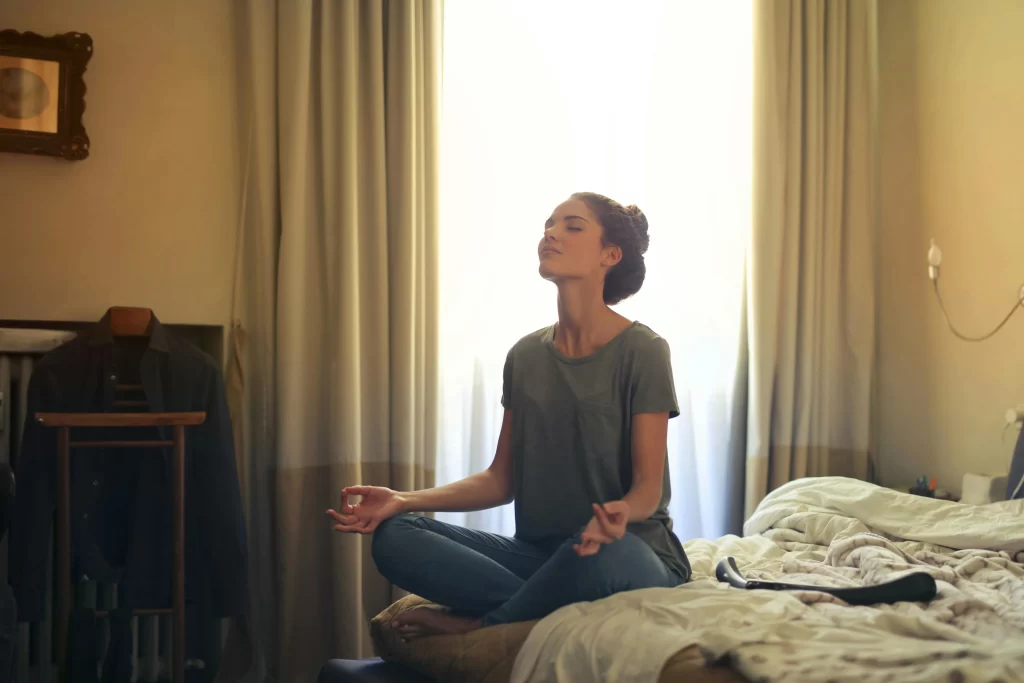Stress has become an unavoidable part of our busy lives. With work deadlines, family responsibilities, and the relentless demands of everyday tasks, it’s no wonder that stress levels are on the rise.
While a little stress can motivate us, ongoing stress can harm our physical and mental well-being, leading to fatigue, anxiety, and health issues. But here’s the good news: you don’t need to overhaul your life for stress reduction. Small, deliberate strategies can significantly enhance your well-being.
Here are ten effective stress management techniques you can easily incorporate into your daily routine for a calmer, more balanced life.
1. Practice deep breathing
How it helps
Deep breathing is one of the fastest and simplest ways to calm your nervous system and reduce stress. By taking slow, intentional breaths, you activate your parasympathetic nervous system, which promotes relaxation and counters your body’s stress response.
Quick breathing exercise
Try the 4-7-8 technique:
- Breathe in through your nose for 4 seconds.
- Hold your breath for 7 seconds.
- Exhale slowly through your mouth for 8 seconds.
Repeat this for four cycles to feel relaxed almost instantly.
2. Prioritize sleep
Why it’s important
Sleep is your body’s natural stress reliever. Getting enough rest helps regulate mood, boosts energy, and makes you more resilient to stressors.
Tips for better sleep
- Create a calming bedtime ritual, like reading or meditating.
- Avoid screens at least an hour before bed to reduce blue light exposure.
- Aim for 7-9 hours of sleep each night to recharge fully.
3. Stay active
How exercise helps
When you move your body, it releases endorphins, also known as “feel-good” chemicals. These naturally combat stress and reduce feelings of anxiety.
Simple ways to stay active
- Take a 10-minute walk around your block or office.
- Stretch for a couple of minutes during work breaks.
- Try a quick home workout. Countless online routines require no equipment!
4. Practice mindfulness or meditation

What it is
Mindfulness involves staying deeply present in the current moment, while meditation promotes focused mental relaxation. Both techniques are backed by science to decrease stress.
How to get started
Spend just 5 minutes a day practising mindfulness:
- Sit in a quiet space.
- Close your eyes and focus on your breathing.
- If your mind wanders, gently bring your focus back to your breath or surroundings.
Apps like Calm or Headspace can also guide you through beginner-friendly sessions.
5. Set boundaries
Why it’s crucial
Agreeing to everything can quickly result in feeling overwhelmed and exhausted. Establishing healthy boundaries helps you safeguard your time and energy.
Tips
- Learn to say “no” to commitments that don’t benefit you.
- Delegate tasks to ease your burden.
- Set aside specific hours for personal time, and make sure to communicate those boundaries clearly.
6. Break tasks into smaller steps
How it reduces stress
Large tasks can feel overwhelming. Breaking them into smaller, manageable steps makes them feel less daunting and helps you stay productive without added pressure.
Example
- Use a to-do list to outline your priorities.
- Time-block your day to focus on each step sequentially.
- Celebrate small wins as you complete each task!
7. Engage in creative activities
Why it works
Creativity allows you to disconnect from stress and focus on something fun and fulfilling. Whether you’re sketching, gardening, or journaling, creative pursuits are a proven way to relax.
Quick ideas
- Dedicate 10-15 minutes to a hobby like painting or writing.
- Try adult colouring books. They’re as fun as they are therapeutic!
- Experiment in the kitchen and create a new recipe.
8. Stay connected with loved ones
How it helps
Sometimes, all it takes to ease stress is knowing someone is there for you. Time spent with friends and family provides emotional support and helps you recharge.
Quick connection tips
- Schedule a coffee date or virtual call with a close friend.
- Send a quick text to someone you haven’t spoken to in a while.
- Share a laugh with a loved one. It’s a natural stress buster!
9. Practice gratitude
How it works
Gratitude shifts your focus from what’s causing stress to what’s going well in your life. This change in perspective is incredibly effective for improving mood.
Simple gratitude practice
- Write down three things you’re grateful for each morning or before bed.
- Use a gratitude app to keep track of positive moments throughout the day.
- Share your gratitude with others. It’ll brighten your day and theirs.
10. Listen to music or sounds
Why it helps
Music has a unique ability to transport your mind, helping you relax and unwind. Likewise, natural sounds like rain, ocean waves, or running water can instantly create a calming environment.
Quick tip
- Create a playlist of your favourite calming tracks.
- Use streaming platforms to find playlists designed for relaxation or focus.
- Try ambient sounds or white noise apps for a soothing background.
Manage stress with simple, intentional actions
Stress is a natural part of life, but how you manage it is up to you. By adding these ten strategies to your daily routine, you can handle challenges with more ease and balance.
Begin with one small step. Choose a single strategy from this list, like practicing deep breathing or starting a gratitude journal, and give it a try today. Over time, these small changes can greatly enhance your well-being.



Leave a Comment: